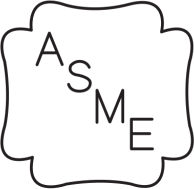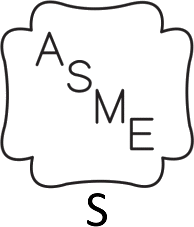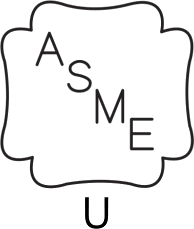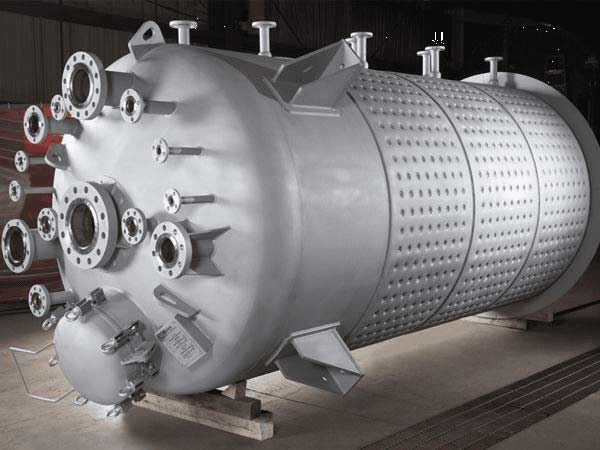 American Society of Mechanical Engineers
American Society of Mechanical Engineers
What is ASME certification?
The ASME Boiler and Pressure Vessel Code (BPVC) is a universally recognized set of safety standards developed by the American Society of Mechanical Engineers. The code governs the design, manufacture, installation, inspection and maintenance of boilers, nuclear components and other pressure vessels.
To become ASME certified, a company must go through a 6-month process to ensure that every operation complies with the code and is performed to the highest standards. The result is the ASME certification mark, which indicates that the product in question is made of high-quality materials and is very safe to use.
Three main aspects stand out when considering its importance for pressure vessels..
- Risk reduction: An ASME stamp is highly valued by insurance companies. Insurance companies typically deny a claim if the vessel does not have a code stamp.
- Quality: Third-party inspections are performed before a pressure vessel receives an ASME stamp. Vessels without a stamp are only held to their own quality control requirements.
- Safer pressure products: At high pressure, many pressure vessels contain potentially hazardous chemicals. The safety of their contents should be a primary priority for anyone who comes into contact with these vessels. An ASME stamp certifies that the tank containing these substances was manufactured correctly.

Although there are many subcategories of ASME stamps, this article will explain the three most common ones. Additional information on the U-stamp will also be provided for better understanding. A person who will be working with pressure vessels should have adequate knowledge of these certifications. Three pressure vessel certifications that are commonly used can be listed as follows..
ASME S stamp
ASME S is another important ASME stamp that allows companies to build power boilers, power pipelines and ASME pressure containing components in accordance with Section I of the latest version of the ASME Boiler and Pressure Vessel Code.

ASME R stamp
After on-site review, the National Board of Boiler and Pressure Vessel Inspectors issues the R stamp for the modification and/or repair of pressure vessels, boilers and other pressure containing equipment. The inspection may be performed by a member of the National Board or a representative, depending on the requirements of the jurisdiction.

ASME U stamp
The ASME U stamp certifies that pressure vessels meet ASME requirements for design, construction, inspection and testing. It is used for certification and acceptance of pressure vessels. The presence of the 'U' mark on a product indicates that it complies with the most recent edition of the Code. It also confirms that the vessel was designed and built to ASME specifications.
As mentioned, additional information about the ASME U mark is provided for many reasons, including the fact that it is a mandatory requirement in many countries and from most insurance companies that deal with this type of pressure equipment. ASME sets strict standards for pressure vessels to provide the utmost safety of life and property.

 ASME U stamp is required for products like this vessel
ASME U stamp is required for products like this vessel
Manufacturers must meet some strict rules to obtain this ASME stamp. Pressure vessels covered by ASME U-stamping standards are specially examined by a third-party approved inspector. The inspector must examine and approve the calculations. The National Board of Boiler and Pressure Vessel Inspectors appoints these inspectors. To manufacture ASME U-stamped pressure vessels, these pressure vessel manufacturers must be registered with the National Board.
An important question may arise here. This question may be 'Is ASME U-stamping a mandatory requirement?'. The answer to this question is not so simple. In short, it is not mandatory in all cases, just like other ASME stamping categories.
A particular company decides whether a pressure vessel it purchases must have an ASME U-stamping. On the other hand, because pressure vessels are used in a wide range of processes and conditions, it is critical to design and build vessels of the highest possible level and quality. The ASME U stamp meets this criterion.
Failure to obtain an ASME vessel can sometimes put the company at risk. In addition to this critical information, it is also critical to note that any vessel that carries a pressure greater than 15 PSI is covered by the ASME code and must be stamped or verified by the ASME. However, the type of ASME stamping depends on several factors.
As mentioned, pressure vessels must meet a number of points to obtain an ASME stamp. For clarification, the requirements that must be met for an ASME U-stamp are listed as follows..
- Before raw material can be used, it must meet detailed specifications
- Welding materials must meet detailed specifications before they can be used
- Welders must be ASME certified
- Material thickness and calculations must meet ASME verified standards for the specific operating conditions
- A re-qualification audit is required every three years by a representative of the National Pressure Vessel Council
The above list demonstrates the strict approach to the ASME stamping qualification procedure for pressure vessels. Thus, it may be wise to know in advance whether a particular company has ASME stamping products by simply looking at a website that provides such information. One can easily find out whether a particular company is ASME certified or not.
More about the ASME Certification process can be found on [www.asme.org]